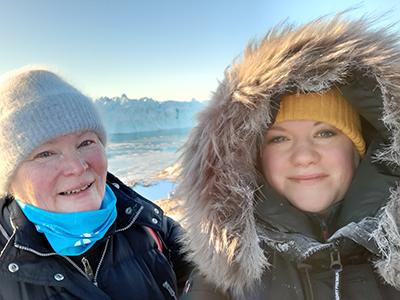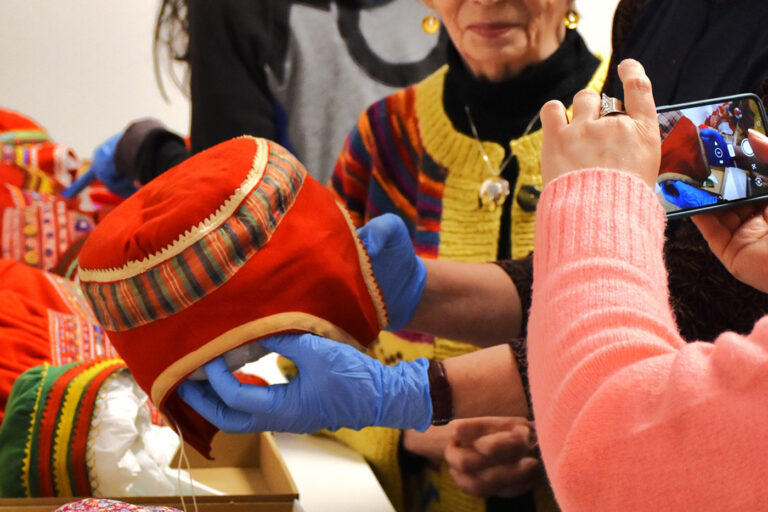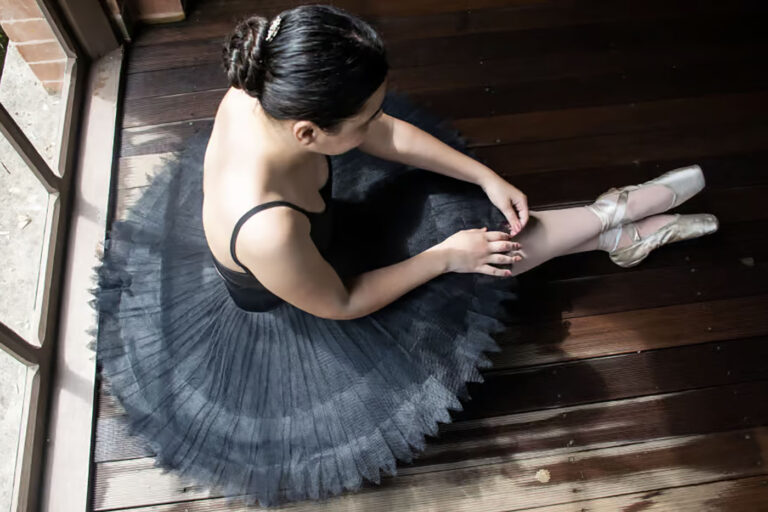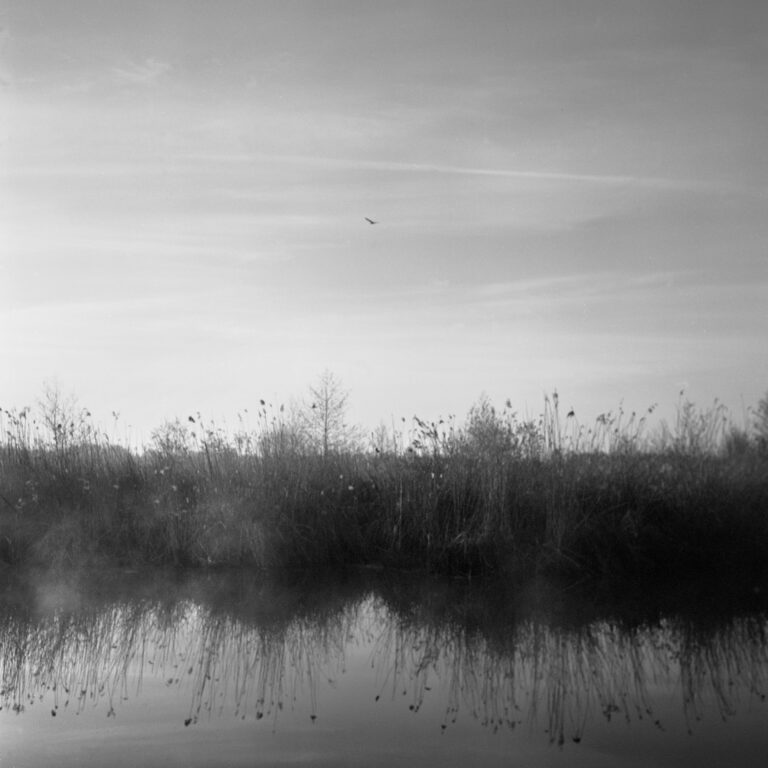Collaboration creates new ways to increase the wellbeing of reindeer herders
The international Arctic Health team counts on local collaboration when investigating the challenges of Sámi reindeer herders in the rapidly changing world.
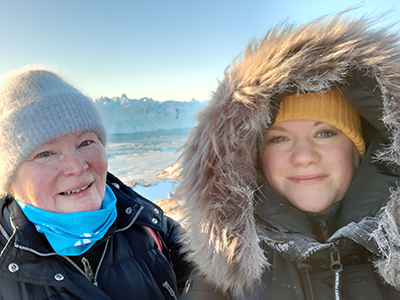
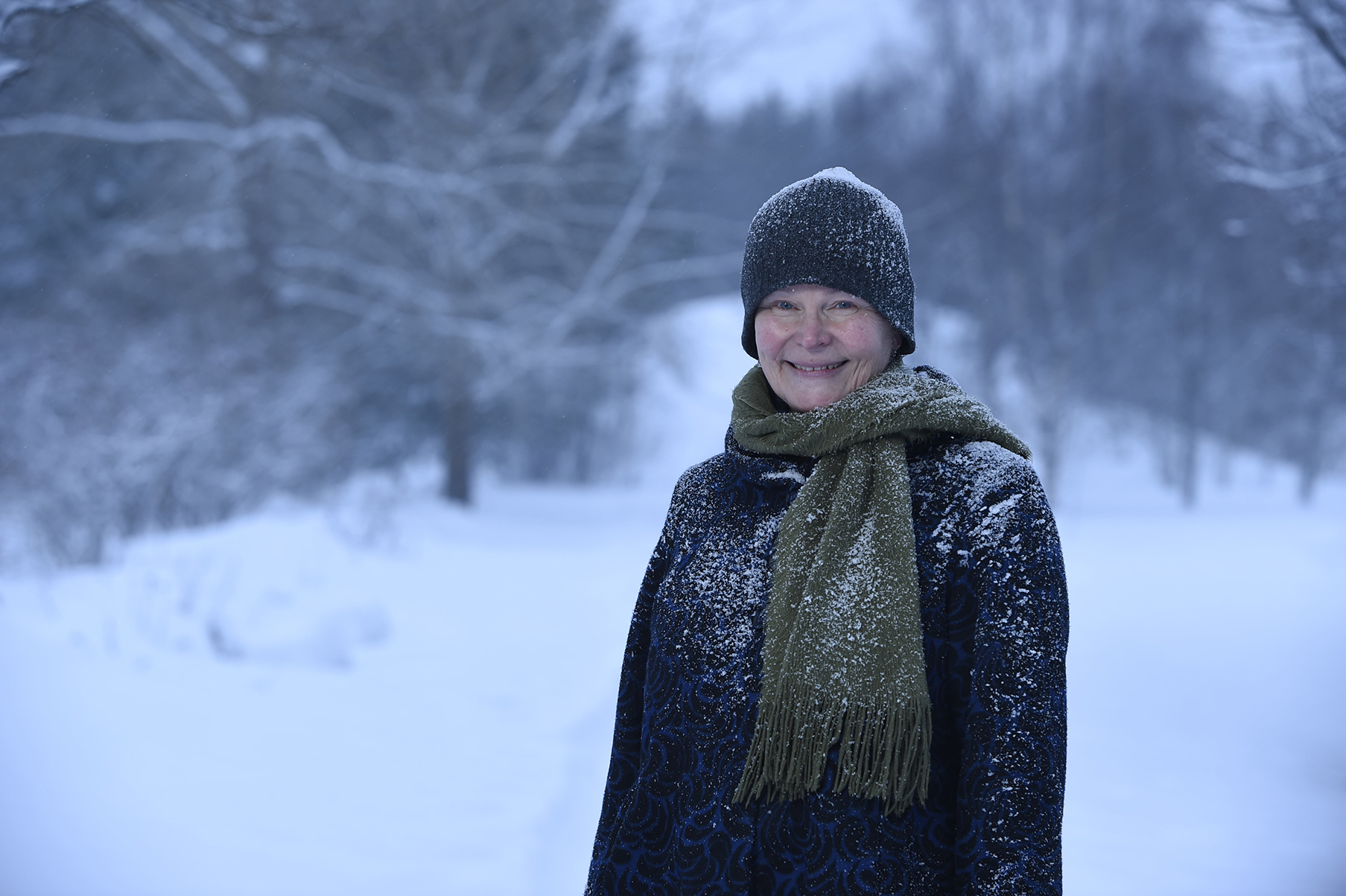
Text: Laura Iisalo
Constant changes in the environment affect the wellbeing of reindeer herders. Global warming in the Arctic is twice as fast as elsewhere in the world, and, in addition, the global pandemic, new laws and regulations, and the effects that trades such as tourism and mining have on traditional livelihood can diminish the life quality of the herders and their families in many ways.
– The Arctic plays an important role in understanding large changes in a global context. The impact of the melting of the permafrost is affecting locals’ lives in many ways. Societal changes and new ways of operating don’t necessarily support the native way of life and the passing of culture from one generation to another, says professor at the University of Oulu, Arja Rautio, who is also the vice president of the University of the Arctic.
Rautio is leading a new international and multidisciplinary research project aiming to understand the lives of Sámi reindeer herders and their families in order to create new ways to support their mental wellbeing. Rautio has already studied Arctic health for over 15 years, and collaborated with doctoral researcher Ulla Timlin who is also part of the new research group, since 2008.
There is already plenty of research data but this time Rautio and her team want to focus on mental wellbeing specifically. Suicides cause great grief for small communities, and deaths, especially among the youth, are common. The subject is still a taboo, and help doesn’t always reach those who need it most.
– Mental health problems are very complicated in general. When you don’t necessarily understand what is bothering you, how can you talk about it to others? The families of reindeer herders often speak Northern Sámi as their mother language, and so it can be difficult for them to talk to a Finnish speaking person who doesn’t necessarily understand the nature of reindeer herding. It is important to lower the threshold for seeking help, and to find appropriate support methods so that people can talk about the questions relating to mental wellbeing in their own language and on their own terms, Rautio says.
Long term collaboration forms the basis for trust
The three-year study will gather together an international and multidisciplinary group of researchers. Rautio and Timlin will be joined by the distinguished professor and Canadian Research Chair Roberta Woodgate from the University of Manitoba in Canada, and the founder and executive director of the SámiSoster association, Ristenrauna Magga, who is also an honorary doctor at the University of Tampere for her achievements in investigating and improving the health and wellbeing of the Sámi people.
It has become clear in previous examinations that the Sámi people consider their community as an important form of peer support. Collaboration with local operators and the Utsjoki municipality is therefore key, and the purpose is to allow the local people to define the things that matter to them most.
In order to understand the future we must know the past, and look at the present.
– It is very different to live in a small village, where nature sets the pace, from in a big city. This, added to the pressures that come from the outside, creates many challenges. The young Sámi people wonder what is the future of reindeer herding, how they can get by, and what they can trust in the rapidly changing world. Collaboration creates trust, which allows these matters to be investigated in depth, says Rautio.
On top of qualitative and quantitative research methods, the group is planning to utilise art-based methods. They hope to exhibit the outcomes in a suitable format as agreed with the local participants. According to Timlin, art can make it easier to discuss matters relating to mental health, and provide the participants with a strong sense of engagement. Art is also an important part of Sámi culture.
The first results are expected to be published in 2022 but Rautio says that the goal is to come up with ways to increase wellbeing that could be used even after the project is over.
– In order to understand the future we must know the past, and look at the present. This is a wonderful continuum where we can put together all our knowledge, skills, and understanding. The project is at its starting point, and anything is possible.
The Central Fund awarded 100 000 euros for a research project investigating the wellbeing of the Sámi reindeer herders led by professor Arja Rautio.
